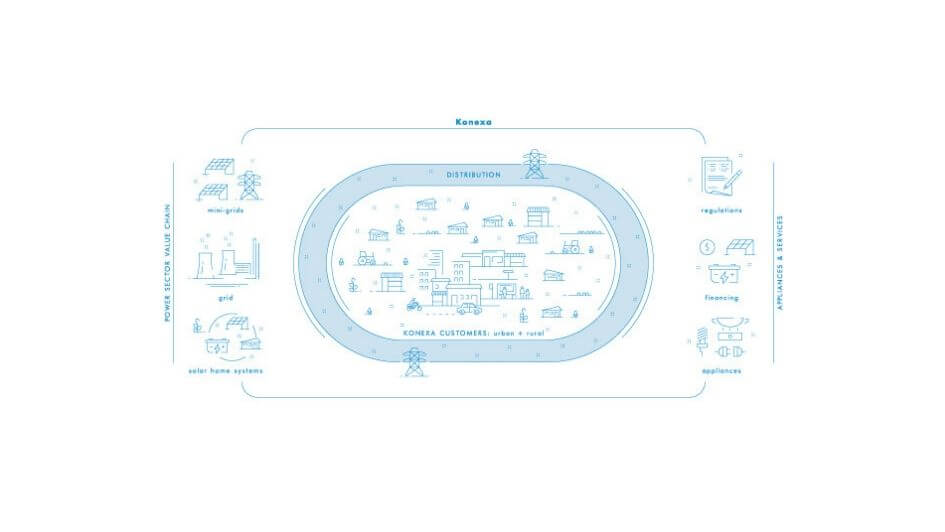Large scale utility companies and off-grid companies still work in isolation, despite obvious synergies related to government policy, regulation, cost efficiencies, technology and cross-subsidisation. In partnership with DFID, USAID and the Rockefeller Foundation, Shell Foundation (SF) started to identify integrated distribution models predicated on partnerships with existing utilities, public sector backing and a customer value proposition for access to 24/7 reliable power for all, irrespective of location and income levels.
The ability to serve all customers – from large commercial and industrial customers to rural, residential customers – is critical to achieving SDG7. Most off-grid models exclusively serve low demand households and lack the anchor loads or commercial customer base to achieve commercial viability and scale. On the other end of the spectrum, some business models focus only on serving the more profitable commercial and industrial customers and leave underserved customers without much improvement in energy provision.
The past 18 months were spent developing the idea from a concept to a business model ready for testing and validation by engaging utility distribution companies across Sub-Saharan Africa and India to explore possible partnerships.
This work has resulted in the creation of a new business, Konexa, launched this year – which seeks to radically transform access, reliability and affordability of electricity in three Sub-Saharan countries, with the goal of reaching over 50 million customers through grid and off-grid solutions.
Konexa is currently validating the integrated utility model through a pilot project in northern Nigeria. To this end, it has signed commercial agreements with two Nigerian distribution companies and identified a pilot area around several 11kV feeders serving a population of around 50,000 to test and refine its approach. Konexa aims to start deploying initial solar home systems and mini-grids later this year and refurbishing the existing grid infrastructure in 2020.
One of the most important roles for Konexa is the ability to carve out special purpose vehicles (SPVs) containing utility assets that allow infrastructure investors to come in without taking on the risk of the incumbent utilities’ existing financial state. Particularly in Nigeria, where many utilities have a negative value, Konexa’s role in unlocking capital for grid renovation is potentially game-changing.
The many years of SF’s off-grid learnings have been incorporated into the Konexa model, such as the need to ensure households and businesses have access to appliances to improve the sales of energy as well as ensuring the economic development of the village, so customers can afford it. The usage of smart technologies, such as pre-paid metering, combined with customer centric business models that have evolved from off-grid solutions, will help demonstrate a path to utility reform.
Though early days, our hope is that Konexa is one of several new models that will deliver a much-needed step change to accelerate progress towards SDG7. Having supported the business to launch, SF will play an early-stage role to enhance its ability to serve lowest-income customers while seeking second-stage support to take it to scale. We will share learnings and insight from this new approach as the work progresses.
This article originally appeared on www.shellfoundation.org
